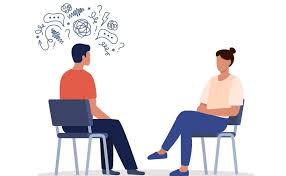
Have you ever heard of bipolar disorder? You probably have heard that it’s intense constant mood swings, or it makes you crazy, but that just isn’t the case. Bipolar disorder is a disorder characterized by high highs and low lows AKA depression and (hypo)mania. Bipolar disorder affects approximately 2.8% of adults in the United States, which means it affects about 6 million people every year. The age of onset is 25 years of age, but it can affect teens, even children. Let’s learn more about this disorder.
What is mania? Mania is a state of abnormally elevated mood and energy, characterized by overactivity, hyperactivity, excitement, feelings of grandeur, and a decreased need for sleep. When manic, a person may experience rapid speech, racing thoughts, explosive anger, impulsive behavior like increase in sexual behavior or spending a lot of money, feeling invincible, having an inflated sense of self-esteem, and in worst case scenarios, psychosis. Mania differs from hypomania because although the symptoms are similar, mania is far more debilitating than hypomania. When hypomanic, you can experience these things and still maintain a job and healthy relationships because it’s a more mild version. Mania or hypomania can be triggered by a few things like your environment. Mania can come out in stressful life events such as divorce or death. People with bipolar can experience (hypo)mania and depression at the same time sometimes.
After feeling a wave of euphoria for a period of time, things that go up, must come down–depression. This wave of depression can last for a while. If you struggle with depression more than mania, you most likely have bipolar 2. Bipolar 2 differs from bipolar 1 because in bipolar 2, that’s where you experience hypomania more than mania and depression is a lot more prevalent. Luckily, regardless of your diagnosis, there’s treatment for bipolar. For people with bipolar, it is imperative that they take a mood stabilizer with an antidepressant. If a mood stabilizer isn’t taken with it, the antidepressant can trigger mania in people with bipolar. It is also recommended that people with bipolar have a therapist as well as a psychiatrist. With this treatment, a bipolar person should be able to live a regular life, but the biggest challenge is medication consistency.

Leave a Reply